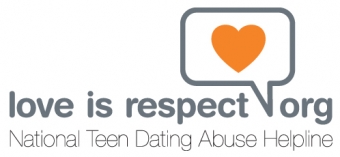- Education Topics
- Achievement Gap
- Alternative Education
- American Education Awards
- Assessment & Evaluation
- Education during COVID-19
- Education Economics
- Education Environment
- Education in the United States during COVID-19
- Education Issues
- Education Policy
- Education Psychology
- Education Scandals and Controversies
- Education Reform
- Education Theory
- Education Worldwide
- Educational Leadership
- Educational Philosophy
- Educational Research
- Educational Technology
- Federal Education Legislation
- Higher Education Worldwide
- Homeless Education
- Homeschooling in the United States
- Migrant Education
- Neglected/Deliquent Students
- Pedagogy
- Sociology of Education
- Special Needs
- National Directories
- After School Programs
- Alternative Schools
- The Arts
- At-Risk Students
- Camps
- Camp Services
- Colleges & Universities
- Counties
- Driving Schools
- Educational Businesses
- Financial Aid
- Higher Education
- International Programs
- Jewish Community Centers
- K-12 Schools
- Language Studies
- Libraries
- Organizations
- Preschools
- Professional Development
- Prom Services
- School Assemblies
- School Districts
- School Field Trips
- School Health
- School Supplies
- School Travel
- School Vendors
- Schools Worldwide
- Special Education
- Special Needs
- Study Abroad
- Teaching Abroad
- Volunteer Programs
- Youth Sports
- For Schools
- Academic Standards
- Assembly Programs
- Blue Ribbon Schools Program
- Educational Accreditation
- Educational Television Channels
- Education in the United States
- History of Education in the United States
- Reading Education in the U.S.
- School Grades
- School Meal Programs
- School Types
- School Uniforms
- Special Education in the United States
- Systems of Formal Education
- U.S. Education Legislation
- For Teachers
- Academic Dishonesty
- Childcare State Licensing Requirements
- Classroom Management
- Education Subjects
- Educational Practices
- Interdisciplinary Teaching
- Job and Interview Tips
- Lesson Plans | Grades
- Professional Development
- State Curriculum Standards
- Substitute Teaching
- Teacher Salary
- Teacher Training Programs
- Teaching Methods
- Training and Certification
- For Students
- Academic Competitions
- Admissions Testing
- At-Risk Students
- Career Planning
- College Admissions
- Drivers License
- Educational Programs
- Educational Television
- High School Dropouts
- Higher Education
- School Health
- Senior Proms
- Sex Education
- Standardized Testing
- Student Financial Aid
- Student Television Stations
- Summer Learning Loss
Home | National Directories | Volunteer Program | Loveisrespect.org - The National Teen Dating Abuse Helpline |
Loveisrespect.org - The National Teen Dating Abuse Helpline

Basic Information
Address: P.O. Box 161810
Austin, TX 78716
Phone Number: 1-800-525-1978 x3297
Fax Number: 1-512-453-8541
Email: volunteers@loveisrespect.org
Action Shots
* There are currently no photos associated with this listing.
Additional Information
Background Check: Yes
Population Served: Teens
Ages for Volunteer: 16+ up
Hours of Service: 4pm- 2am
Minimum Hours Required: 8 hours/month
Days of Service: monday thru sunday
Mission Statement:
loveisrespect.org provides resources for teens, parents, friends and family, Peer Advocates, government officials, law enforcement officials and the general public. All communication is confidential and anonymous.
Program History:
loveisrespect, National Teen Dating Abuse Helpline was launched in February 2007 with help from founding sponsor, Liz Clairborne Inc. It is a national 24-hour resource that can be accessed by phone or the internet, specifically designed for teens and young adults. The Helpline and loveisrespect.org offer real-time one-on-one support from trained Peer Advocates. Managed by the National Domestic Violence Hotline (NDVH), loveisrespect, National Teen Dating Abuse Helpline operates from a call center in Austin, Texas.
Peer Advocates are trained to offer support, information and advocacy to those involved in dating abuse relationships as well as concerned parents, teachers, clergy, law enforcement, and service providers.

